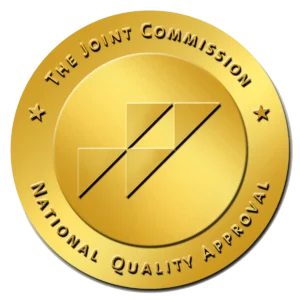Early Alzheimer’s disease and depression share many symptoms, so it can be hard—even for doctors—to distinguish between the disorders. Plus, many people with Alzheimer’s disease are also depressed.
“A frequent concern for clinicians is whether a depressed older adult’s cognitive impairment and decline reflect an underlying dementia or can be explained solely by the depression. A substantial literature validates clinical observations that cognitive impairment often coexists with depression in elderly patients. In nondemented individuals, both depression and cognitive decline are associated with subsequent onset of dementia,” wrote Ganguli, Du, Dodge, et al in their 2006 study on depressive symptoms and cognitive decline in late life.
Research indicates the existence of a preclinical stage of Alzheimer’s disease during which pathological changes in the brain gradually accumulate without detectable cognitive symptoms. One of the earliest changes occurring during this stage is an increase in cortical amyloid β deposition.
For a new study, researchers led by Jennifer Gatchel, MD, of the Harvard Medical School examined longitudinal data from the Harvard Aging Brain Study (HABS). They “sought to determine whether baseline cortical amyloid modified the longitudinal association between depressive symptoms and cognition in unimpaired older adults” in the HABS.
“Depressive symptoms, including those in the subthreshold and mild range, are prevalent and distressing among older adults. Such symptoms might also serve as clinical indicators or modifiers of cognitive performance and Alzheimer’s disease (AD).” Gatchel’s team suggests that “concurrent changes in depression and cognition among older adults with higher cortical amyloid suggest that depressive symptoms may serve as targets in delaying the clinical symptoms of Alzheimer’s disease.”
Some of the symptoms common to both AD and depression include:
- Loss of interest in once enjoyable activities and hobbies
- Social withdrawal
- Memory problems
- Sleeping too much or too little
- Impaired concentration
The Harvard researchers concluded that their “findings add to a growing body of literature supporting an association between concurrent changes in depression and cognition, providing some of the first focused evidence of this association in preclinical AD defined based on amyloid PET neuroimaging. Results support depressive symptoms as among the earliest changes related to AD pathological burden and cognitive decline. They underscore the importance of close monitoring of older adults with depressive symptoms in clinical settings and the need for further study of the potential utility of targeting these symptoms in preclinical AD intervention studies aimed at mitigating cognitive decline.”
Early Intervention and Comprehensive Care
Close monitoring and early intervention can make a big difference. The Pavilion at Williamsburg Place offers a geriatric program specifically designed for adults aged 55 and over. Medical advances have allowed people to live longer and our understanding of elderhood has changed in recent decades. But aging can be accompanied by many challenges, including decreased physical and mental capabilities, the loss of loved ones, and end-of-life issues. Often, seniors do not seek the care they need although they may require highly specialized care designed specifically to address their psychological issues.
Symptoms may include behavioral disturbances, severe depression with suicidal ideation, anxiety, hallucinations, and delusions. Common admission diagnoses at the Pavilion include dementia, depression, anxiety, mood and behavior changes, and substance abuse. Medical specialists may be consulted to manage underlying physical illnesses that may be contributing to behavioral, emotional, and cognitive instability. The Pavilion is ideally suited to provide this level of integrated, comprehensive care for older adults.






